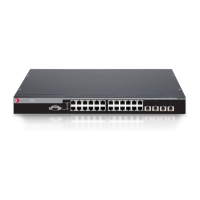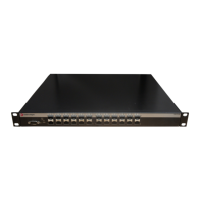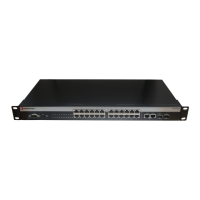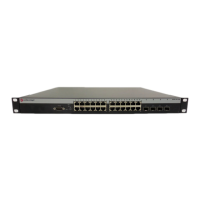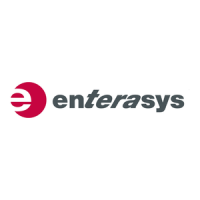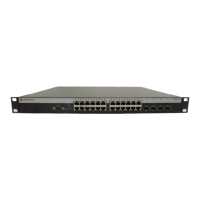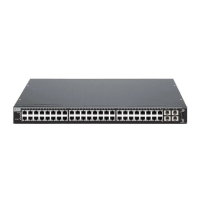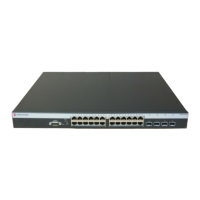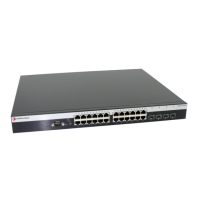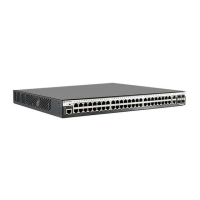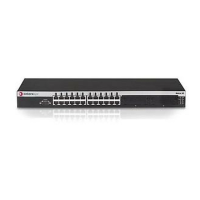Configuring Policy Class of Service (CoS)
SecureStack C2 Configuration Guide 11-17
Configuring Policy Class of Service (CoS)
TheSecureStackC2supportsClassofService(CoS),whichallowsyoutoassignmission‐critical
datatoahigherprioritythroughthedevicebydelayinglesscriticaltrafficduringperiodsof
congestion.Thehigherprioritytrafficgoingthroughthedeviceisservicedfirst(beforelower
prioritytraffic).TheClassofService
capabilityofthedeviceisimplementedbyapriority
queueingmechanism.ClassofServiceisbasedontheIEEE802.1D(802.1p)standardspecification,
andallowsyoutodefineeightpriorities(0‐7,with7grantedhighestpriority)andupto8transmit
queues(0‐7)foreachport.
Bydefault,policy
‐basedCoSisdisabledonthedevice,anddefaultoruser‐assignedport‐based
802.1D(802.1p)settingsareusedtodeterminetrafficprioritization.Whenpolicy‐based CoSis
enabled,thedefaultanduser‐assignedpolicy‐basedsettingswilloverrideport‐basedsettings
describedinChapter 12.
ClassofServicefunctionalitycan
alsobeusedtocontrolbroadcast,unknownunicast,and/or
multicastflooding.Thisfeaturepreventsconfiguredportsfrombeingdisruptedbyatrafficstorm
byrate‐limitingspecifictypesofpacketsthroughthoseports.Referto“AboutCoS‐BasedFlood
Control”onpage 11‐19formoreinformation.
About Policy-Based CoS Configurations
Onceenabledusingthesetcosstatecommand,youcanaddtothepolicy‐basedCoSfunctionby
definingnewportgroupings,andassigninginboundratelimiters.Theprocessforuser‐defined
CoSconfiguration involvesthefollowingstepsandassociatedcommandslistedinProcedure 11‐1.
Anexamplefollowstheprocedure.
Example
Thisexamplecreatesdifferentinboundratelimitersfortwoportgroupsandthenassignsthemto
trafficwithaCoSsettingof0.
1. Configuretwoportgroups,oneforuserportsandoneforuplinkportsandassignportstothe
groups.Portgroup1.0willrepresentuserports,group2.0
willrepresentuplinkports.
C2(su)->set cos port-config irl 1.0 name Users ports ge.1.1-46
C2(su)->set cos port-config irl 2.0 name Uplink ports ge.1.47-48
Note: It is recommended that you use Enterasys Networks NetSight Policy Manager as an
alternative to CLI for configuring policy-based CoS on the switches.
Co
Note: Unlike CoS-based rate limiting, CoS-based flood control does not require a policy license on
SecureStack B2 and B3 switches or on standalone D2 switches.
Procedure 11-1 User-Defined CoS Configuration
Step Task Command(s)
1. Enable CoS set cos state enable
2. Create CoS IRL port groups set cos port-config irl
3. Define physical rate limiters for groups set cos port-resource irl
4. Create virtual reference for the IRL resource
(physical reference) for each port group
set cos reference
5. Add IRL reference to CoS settings table set cos settings
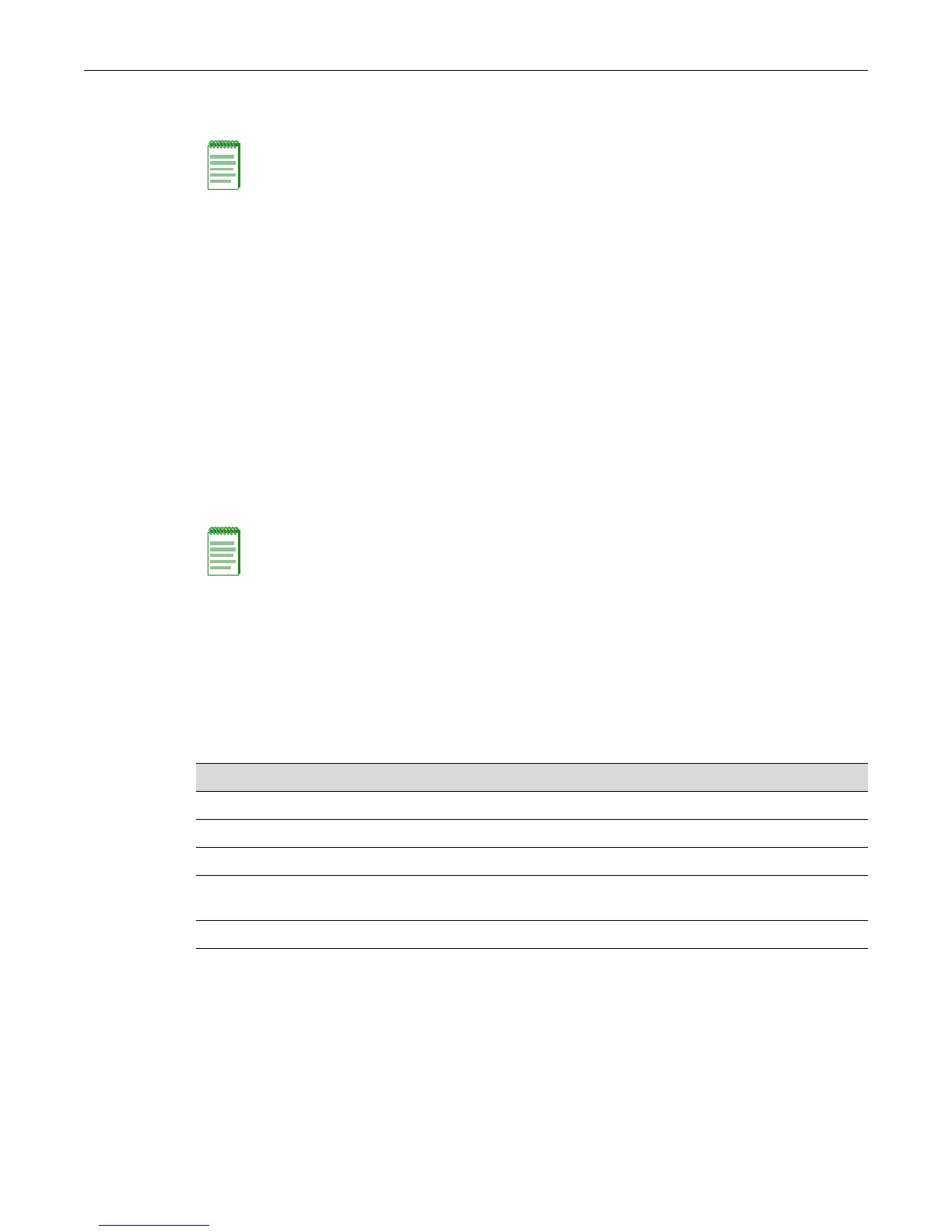